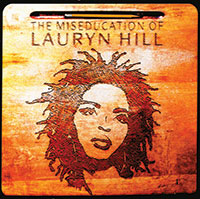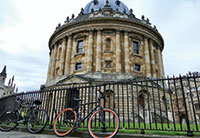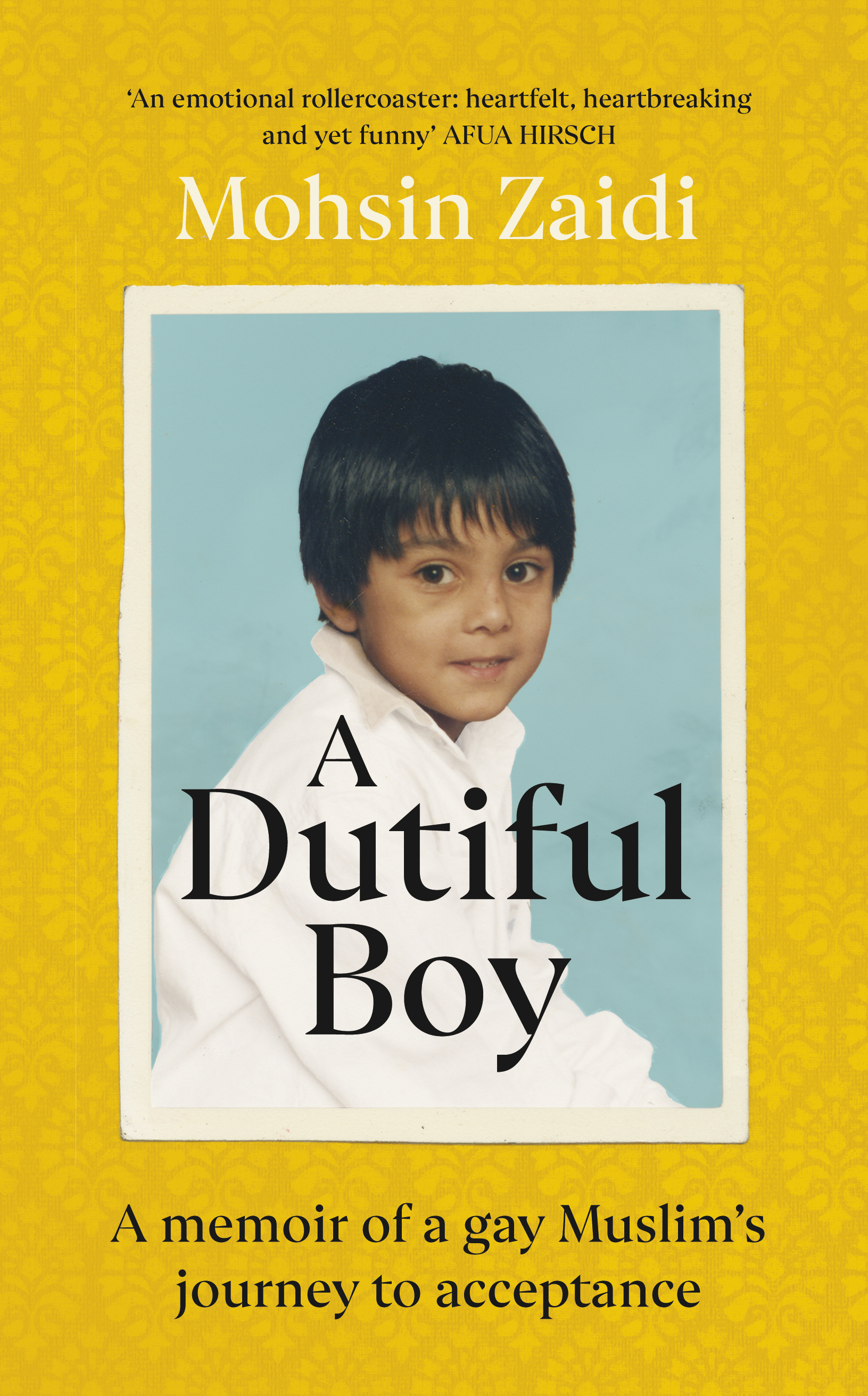*/
There are so many I could choose from. Three come to mind. Educated by Tara Westover is an inspiring book about the power of education and is beautifully written. The transformative impact of education is an integral part of my story and forms a central theme in A Dutiful Boy. When Breath Becomes Air by Paul Kalanithi was one of the first books that made me think seriously about writing a memoir. Kalanithi writes with an honesty and an insight that I can only hope to aspire to. Chimimanda Ngozi Adichie is one of my favourite writers and her book Americanah is a work of art. It deals with issues relating to identity with subtlety and sophisticated depth.
In my opinion, The Miseducation of Lauren Hill is one of the best albums ever made and I listen to it regularly. The interludes are recordings of conversations between a teacher and his students. The album was released when I was a young teenager and I associate it with my old secondary school and with Walthamstow, the place I was born and raised. I am now a governor at my old school and listening to those songs today brings with it a sense of nostalgia. It prompts me to reflect on all the things that have happened since the first time I was moved by those lyrics so long ago.

East is East was a film about young British Pakistanis dealing with the clashes of being raised in a Muslim household but in a western society and it made me feel like my experiences weren’t abnormal. This isn’t a film but in A Dutiful Boy I write about the experience of watching Queer as Folk. It first aired on Channel 4 in 1999, when I was 14 years old. I don’t think the impact of Russell T Davies’ writing can be overestimated. Watching two men kiss on TV was the first time I’d seen anything like it and it prompted me to come out, if only to myself.
I didn’t grow up with an appreciation of art and, in honesty, didn’t really understand what all the fuss what about. That changed when I saw my first Edward Hopper painting – Room in New York. It depicts a couple, with the man reading a paper and the woman seemingly bored at a piano. Looking at the painting, I remember being moved in a way that, until then, I thought only music had the power to do.

I try not to be one of those people that goes on about having studied at Oxford but it really did change my life. For me, it was a golden ticket out of the circumstances I’d been born into. Once I got there, I had the freedom to figure out who I really was and it gave me the confidence to break away from the person I thought I had to be. I also learnt a lot about Britain. For example, I’d never heard of Eton or Harrow and didn’t realise not everyone had a student loan.

Some readers might argue this doesn’t count as a ‘luxury item’ but I could not be without a pair of running shoes. In his memoir What I Talk About When I Talk About Running, Haruki Murakami writes about how much he needs running. Unlike Murakami, I am not an ultramarathon runner, not even a marathon runner, but when I’m away from home I do need to go for a run to clear my head and help myself think creatively. Mid-trial, I find it can be an excellent opportunity to practise the closing speech but, mostly, not out loud.

There are so many I could choose from. Three come to mind. Educated by Tara Westover is an inspiring book about the power of education and is beautifully written. The transformative impact of education is an integral part of my story and forms a central theme in A Dutiful Boy. When Breath Becomes Air by Paul Kalanithi was one of the first books that made me think seriously about writing a memoir. Kalanithi writes with an honesty and an insight that I can only hope to aspire to. Chimimanda Ngozi Adichie is one of my favourite writers and her book Americanah is a work of art. It deals with issues relating to identity with subtlety and sophisticated depth.
In my opinion, The Miseducation of Lauren Hill is one of the best albums ever made and I listen to it regularly. The interludes are recordings of conversations between a teacher and his students. The album was released when I was a young teenager and I associate it with my old secondary school and with Walthamstow, the place I was born and raised. I am now a governor at my old school and listening to those songs today brings with it a sense of nostalgia. It prompts me to reflect on all the things that have happened since the first time I was moved by those lyrics so long ago.

East is East was a film about young British Pakistanis dealing with the clashes of being raised in a Muslim household but in a western society and it made me feel like my experiences weren’t abnormal. This isn’t a film but in A Dutiful Boy I write about the experience of watching Queer as Folk. It first aired on Channel 4 in 1999, when I was 14 years old. I don’t think the impact of Russell T Davies’ writing can be overestimated. Watching two men kiss on TV was the first time I’d seen anything like it and it prompted me to come out, if only to myself.
I didn’t grow up with an appreciation of art and, in honesty, didn’t really understand what all the fuss what about. That changed when I saw my first Edward Hopper painting – Room in New York. It depicts a couple, with the man reading a paper and the woman seemingly bored at a piano. Looking at the painting, I remember being moved in a way that, until then, I thought only music had the power to do.

I try not to be one of those people that goes on about having studied at Oxford but it really did change my life. For me, it was a golden ticket out of the circumstances I’d been born into. Once I got there, I had the freedom to figure out who I really was and it gave me the confidence to break away from the person I thought I had to be. I also learnt a lot about Britain. For example, I’d never heard of Eton or Harrow and didn’t realise not everyone had a student loan.

Some readers might argue this doesn’t count as a ‘luxury item’ but I could not be without a pair of running shoes. In his memoir What I Talk About When I Talk About Running, Haruki Murakami writes about how much he needs running. Unlike Murakami, I am not an ultramarathon runner, not even a marathon runner, but when I’m away from home I do need to go for a run to clear my head and help myself think creatively. Mid-trial, I find it can be an excellent opportunity to practise the closing speech but, mostly, not out loud.



The Chair of the Bar sets out how the new government can restore the justice system
In the first of a new series, Louise Crush of Westgate Wealth considers the fundamental need for financial protection
Unlocking your aged debt to fund your tax in one easy step. By Philip N Bristow
Possibly, but many barristers are glad he did…
Mental health charity Mind BWW has received a £500 donation from drug, alcohol and DNA testing laboratory, AlphaBiolabs as part of its Giving Back campaign
The Institute of Neurotechnology & Law is thrilled to announce its inaugural essay competition
How to navigate open source evidence in an era of deepfakes. By Professor Yvonne McDermott Rees and Professor Alexa Koenig
Brie Stevens-Hoare KC and Lyndsey de Mestre KC take a look at the difficulties women encounter during the menopause, and offer some practical tips for individuals and chambers to make things easier
Sir Geoffrey Vos, Master of the Rolls and Head of Civil Justice since January 2021, is well known for his passion for access to justice and all things digital. Perhaps less widely known is the driven personality and wanderlust that lies behind this, as Anthony Inglese CB discovers
The Chair of the Bar sets out how the new government can restore the justice system
No-one should have to live in sub-standard accommodation, says Antony Hodari Solicitors. We are tackling the problem of bad housing with a two-pronged approach and act on behalf of tenants in both the civil and criminal courts